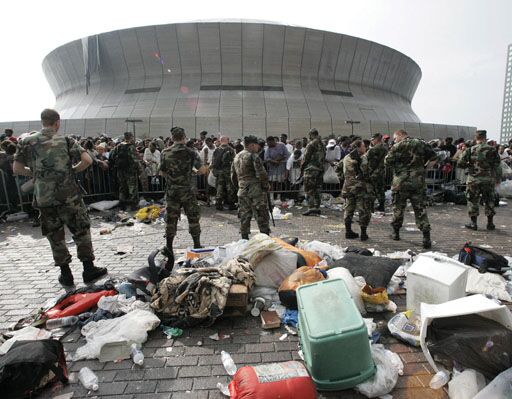
U.S. Military Overstretch Will Only Grow Worse
The U.S. military is the mightiest in the world. It is also the military with the most demands made upon it. In fact, those demands—against a backdrop of increasing global anti-Americanism—are already stretching it to the point that its options are being limited.
Enlistment is down, and Army Reserves and National Guard troops are being called on to fill the gap. Terms of deployment to live theaters are being extended; morale is suffering.
With the ongoing insurgencies in Iraq and Afghanistan tying down U.S. troops, America’s capacity to handle any other major conflict has been severely restricted. With the potential crises that Iran, North Korea, etc. represent, the United States is taking the dead-end route of diplomatic bargaining and compromise not because it is the best option—but because it’s really the only present option.
Now, President Bush is proposing another job for America’s overstretched military—and a job that will prove greater than either the president or the military could now possibly envisage.
On Sunday, September 25, President Bush put forward the suggestion that the Department of Defense become the first responder to large natural disasters. In an address to members of a military task force involved in Hurricane Katrina’s aftermath, he said he wanted Congress to consider putting the Pentagon in charge of responding to natural disasters of a certain size.
Several days earlier, the president had made similar remarks in his address to the nation from New Orleans: “It is now clear that a challenge of this scale requires greater federal authority and a broader role for the armed forces ….”
While obviously a reaction to general public dissatisfaction with the federal response to Katrina, President Bush’s proposal is nevertheless revealing.
Of course, it illustrates the seriousness of the disaster the nation has just suffered—and the inability of such calamities to be coped with on the local level.
But whatever comes of this particular proposal at this time, a certain U.S. mindset is being revealed: an increasing focus on what is happening at home. And as America’s domestic problems increase—whether they are economic, weather-related or terrorist-instigated—the nation will be forced to concentrate on troubles within its borders even more.
White House press secretary Scott McClellan “emphasized that federal authority would be invoked only in ‘really extraordinary circumstances,’ such as a Katrina-size hurricane, a terrorist attack ‘or a disease pandemic, like an avian-flu outbreak’” (Washington Times,September 26). These “extraordinary circumstances,” however, are prophesied to become normal circumstances soon. The Bible prophesies of increasing weather disasters, terrorist attacks and disease epidemics that will cripple America.
A prophecy in Ezekiel 5 indicates a devastating amount of the population will perish in destruction within America‘s cities—before the “sword,” or an outside military attack, comes.
The time will come, Congress approval or no, when problems within the United States will intensify to such a level of catastrophe that the military will have no choice but to step in and try to deal with the crises. The curses on America are prophesied to increase to where no state or local government, no disaster-relief agency, will be able to make more than a dent in the devastation wreaked. There is no doubt that the demands made upon the U.S. military at that time will have a significant impact on its battle-readiness.
